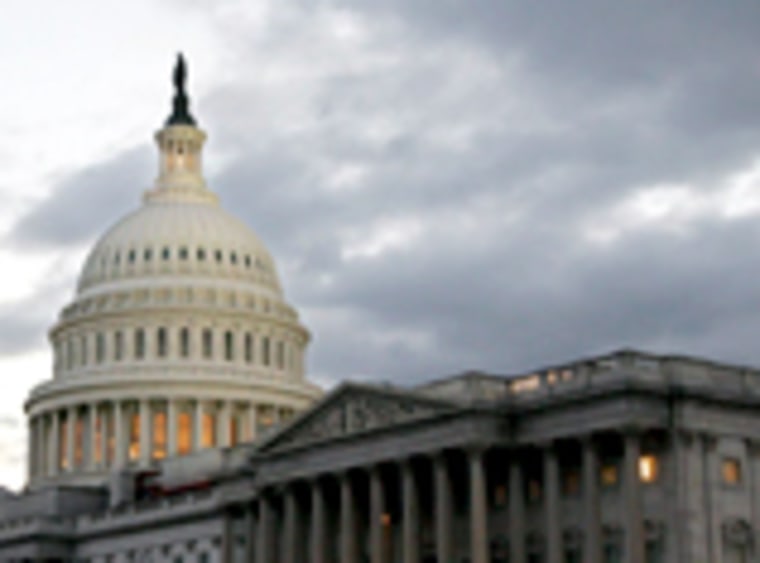
The long, hot vacation both President Barack Obama and Congress will take in August isn’t likely to cool tensions in the longstanding stalemate over federal spending and the national debt.
A growing number of Republicans have already begun to back away from a strategy that would threaten a default on the national debt this autumn – prompting hopes that Obama might cleave off enough GOP votes to finally forge a “grand bargain” covering taxes and spending – but the outlook for such an overarching agreement remains bleak.
“In the House, Republicans just aren’t moving,” said Maryland Rep. Chris Van Hollen, Democrats’ point man on budget issues in the House. “Most of what we’ve seen amounts to ultimatums or threats of a government shutdown. Certainly we’re seeing no signs of flexibility.”
Though Obama and House Speaker John Boehner, R-Ohio, reportedly almost struck an agreement in the summer of 2011 pairing entitlement reforms with spending cuts and new tax revenue, the window of opportunity might be closed for good.
The poor relationship between the Boehner-led Republican House and the Obama administration sets the stage for a confrontational showdown this fall over extending spending to keep the government open, and raising the nation’s debt limit.
But as conservatives gird for the fight – Boehner has demanded a dollar of spending cuts for every new dollar borrowed – some Republicans, mostly in the Senate, have peeled away from a strategy that would again take the United States to the brink of defaulting on its debt, as almost happened in August 2011.
In particular, a vocal minority of Republicans have rejected a strategy advanced by conservatives like Sens. Mike Lee, R-Utah, and Ted Cruz, R-Texas, in which GOP lawmakers would vow not to raise the debt ceiling unless Obama’s signature health care reform law is defunded.
“It’s a non-starter. And I noticed that if you look at the names … they weren’t around when we risked a shutdown of the government last time,” Sen. John McCain, R-Ariz., said at an AFL-CIO forum on Tuesday. “It’s a fact. When there’s a risk of a shutdown of the government, the Congress is blamed by the American people.”
The fault line might raise hopes that the president might finally find enough Republicans, at least in the Senate, to advance some sort of fiscal compromise. Obama tried to set the parameters for such an agreement when he offered a corporate tax cut in exchange for new infrastructure and transportation spending.
But House Republicans rejected the offer out of hand, calling it insufficient because Obama’s proposal didn’t include individual tax cuts, too.
Boehner offered some hope on Thursday that Congress could avoid a government shutdown when he called for a short-term measure to extend funding past Sept. 30, when the government’s fiscal year ends. But even that measure is fraught with politics; Boehner said he hadn’t decided whether to link that measure to one defunding Obamacare, an option which he might consider in order to win over skeptical conservatives.
The House GOP’s reaction illustrates the difficulty in fording an overarching fiscal deal through Congress. As with immigration reform, even the vote of a bipartisan majority in the Senate does not guarantee consideration of anything in the House.
“With the environment the way that it is right now, you're not going to see a lot get done,” said Republican pollster Jim McLaughlin. “There's not a lot of trust between the two parties right now.”
While disapproval of Congress continues to inch toward record highs, House members represent largely polarized districts. In those instances, their constituents would more often prefer they clash with Obama than compromise.
And Obama himself laid down a stark marker of his own on Wednesday, when he told House Democrats in a closed-door meeting that he would not negotiate with Republicans over the debt limit.
The president has also signaled he’ll continue to hit the road throughout the summer to press his case on the economy ahead of September and October’s battles. Boehner said Wednesday that Republicans had not made any determination about how they would proceed with funding the government, the deadline for which is Sept. 30.
“We’ve wasted a lot of time this summer when we should have been talking,” said Van Hollen. “The only explanation is that House Republicans must feel they gain leverage by taking us to the limit.”
Whether the House GOP will hold strong – or splinter along the same fault lines displayed among Senate Republicans – is another question.
But McLaughlin warned those Republicans to beware the notion that simply demanding cuts – to Obamacare or other programs – in exchange for raising the debt limit is a sufficient political strategy.
“They shouldn't just say let's defund and repeal Obamacare,” he said. “They need to come up with ideas at the grassroots level. They need to have an economic growth message. They need to give people some hope.”